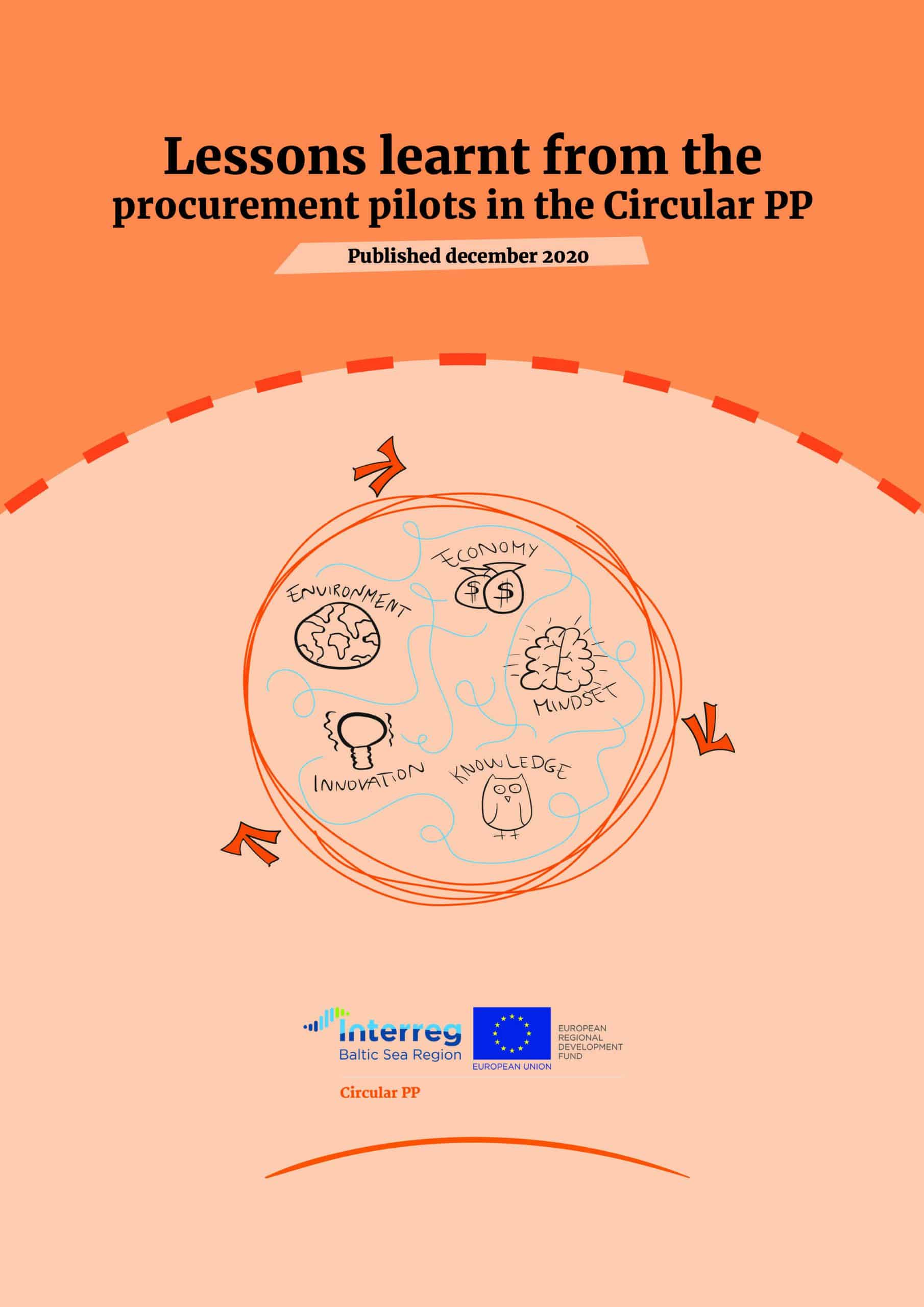Circular PP
Linear vs circular economy approaches
Compared to the linear economy that follows a ‘take-make-dispose’ pattern, a circular economy aims to keep products and materials in the value chain for a more extended period and to recover raw materials after the lifetime of the products for their next use. The principles of the circular economy model have increased maintenance, repair, reuse, refurbishment and recycling. One of the key observations from the growing European work on circular economy is the gap between opportunities identified at the transnational and national levels and common practice in public institutions.
Public procurement in the spotlight
In terms of public procurement with the circular economy approach, one should consider the way of acquiring goods and solutions tackling the whole lifecycle of products throughout the entire supply chain. In general, public authorities usually procure products and services in a linear way, following a buy-use-dispose model. However, a growing interest in a new circular approach that contributes to 'closing the loop' of product lifecycles is a fact.
Circular PP aimed to improve the current knowledge on what is needed to encourage a higher uptake of circular procurement among public institutions.
Budgets
in numbers
-
2.45MillionTotal
-
1.80MillionErdf
-
0.09MillionEni + Russia
-
0.00MillionNorway
Achievements
Mapping helped to develop a baseline
For setting up a baseline of circular procurement for the Baltic Sea region, the project mapped 57 calls for tender from seven countries. The partners developed country-specific action and implementation plans for each pilot area, followed by events for raising awareness of circular procurement among procurers.
Piloting experiences build a legacy
Applied to pilots, public authorities in Aalborg (Denmark), Malmö (Sweden), Smiltene and Pļaviņas (Latvia) piloted innovative approaches to buying circular goods and services. Sharing the knowledge created during pilot activities would ensure a legacy for circular procurement in those model regions as well as for other partners. The experience of the pilots and other exchanges resulted in a series of recommendations for promoting circular procurement at the local, national and European levels. The project delivered e.g. recommendations for public and private organisations on becoming more circular, e.g. through structuring the connected processes or focusing the respective communication. The close collaboration helped to share best practices of circular procurement and provide training to procurers and suppliers across different levels. All material including e.g. videos, infographics on circular public procurement, market engagement, the resource loop, circularity strategies, and circular tenders criteria was presented at 75 events, reaching over 6,000 people.
Baltic Circular Procurement Congress
The project organised the Baltic Circular Procurement Congress attracting more than 300 procurement experts, suppliers, researchers and key opinion leaders from all over Europe to share experiences and best practices of using procurement as an effective tool for the transition towards the circular economy. Purchasers within governmental entities and companies discovered the advantages of circular procurement and explored tools that can facilitate and optimise its implementation. The societal challenge of resource efficiency and search for innovative solutions from a multidimensional perspective was discussed by public authorities, research institutions, SMEs and non-profit organisations.
Outputs
Lessons learned from pilot procurements

Recommendations and other supporting material for the policy framework
Project Stories
Partners
City of Aalborg (AAL)
- TownNørresundby
- RegionNordjylland
- CountryDenmark
- RepresentativeJens Riise Dalgaard
- Phone
- E-Mail
- Web
City of Malmo (MAL)
- TownMalmö
- RegionSkåne län
- CountrySweden
- RepresentativeHelen Nilsson
- Phone
- E-Mail
- Web
Aalborg University (AAU)
- TownAalborg
- RegionNordjylland
- CountryDenmark
- RepresentativeArne Remmen
- Phone
- E-Mail
- Web
Saint Petersburg campus of National Research University Higher School of Economics (HSE)
- TownSt. Petersburg
- RegionCity of St. Petersburg
- Country
- RepresentativeAleksandr Travin
- Phone
- E-Mail
- Web
Latvian Environmental Investment Fund (LEIF)
- TownRiga
- RegionRīga
- CountryLatvia
- RepresentativeAija Zucika
- Phone
- E-Mail
- Web
Rzeszow Regional Development Agency (RRDA)
- TownRzeszow
- RegionRzeszowski
- CountryPoland
- RepresentativeMarek Duda
- Phone
- E-Mail
- Web
Rijkswaterstaat – Ministry of Infrastructure and the Environment (RWS)
- TownUtrecht
- RegionUtrecht
- CountryNetherlands
- RepresentativeCuno Van Geet
- Phone
- E-Mail
- Web
Finnish Environment Institute (SYKE)
- TownHelsinki
- RegionHelsinki-Uusimaa
- CountryFinland
- RepresentativeHanna Salmenpera
- Phone
- E-Mail
- Web
Latvian Chamber of Commerce and Industry (LCCI)
- TownRiga
- RegionRīga
- CountryLatvia
- RepresentativeLiga Abola
- Phone
- E-Mail
- Web
NorthDenmark EU-Office (EENA)
- TownStøvring
- RegionNordjylland
- CountryDenmark
- RepresentativeHanne Bregendahl Pihl
- Phone
- E-Mail
- Web
-
Project managerBirgitte Krebs SchleemannCIty of Aalborg (AAL)
-
Legal representativeJens Riise DalgaardCity of Aalborg (AAL)
-
Financial managerBirgitte Krebs SchleemannCity of Aalborg
-
Communication managerKatarzyna CzopRzeszow Regional Development Agency (RRDA)



